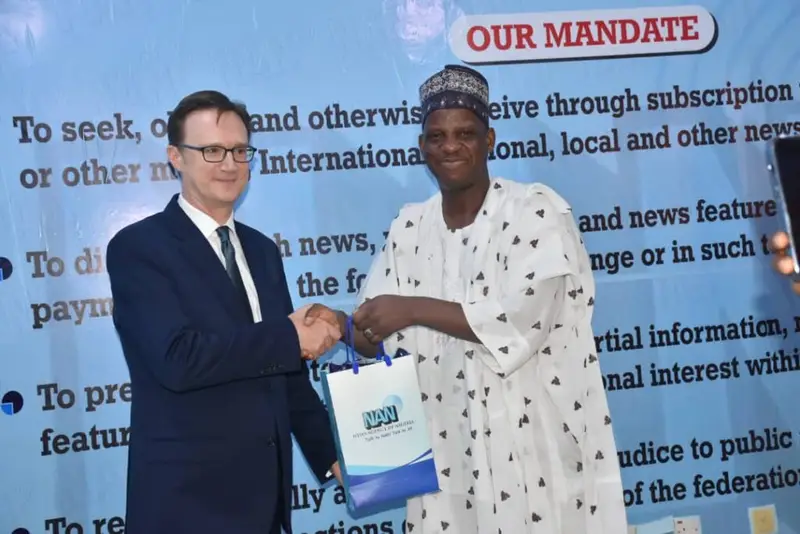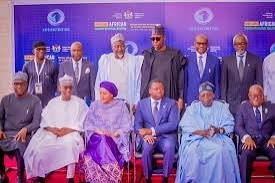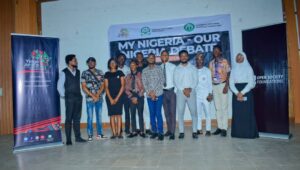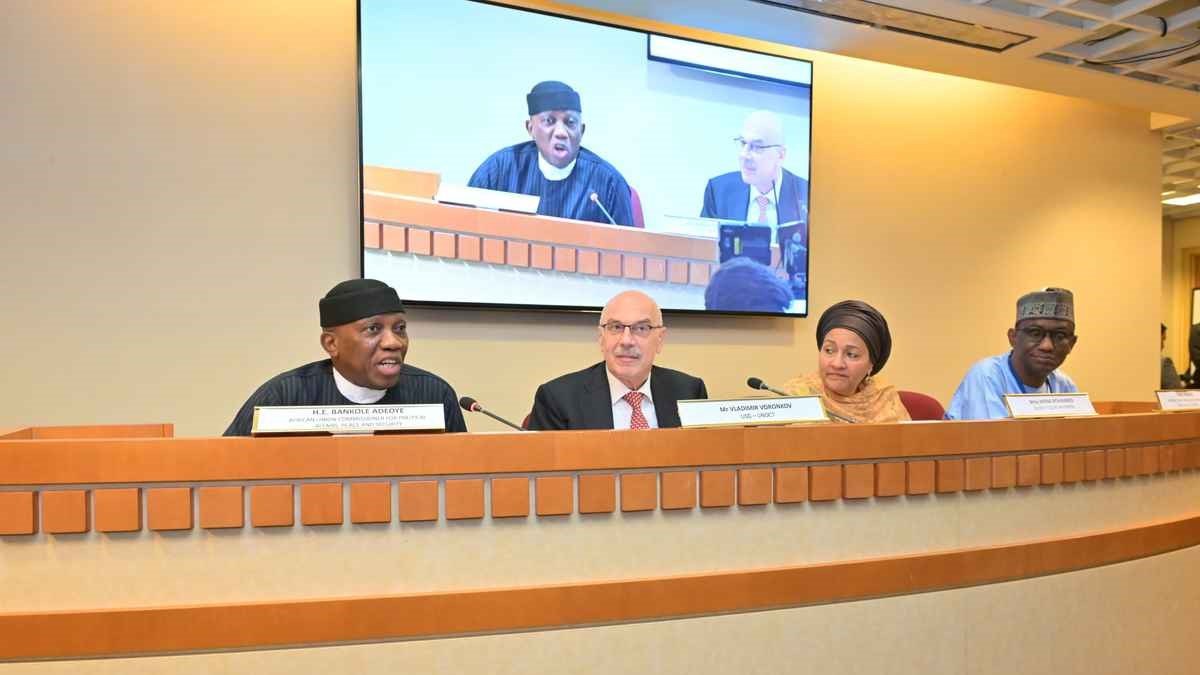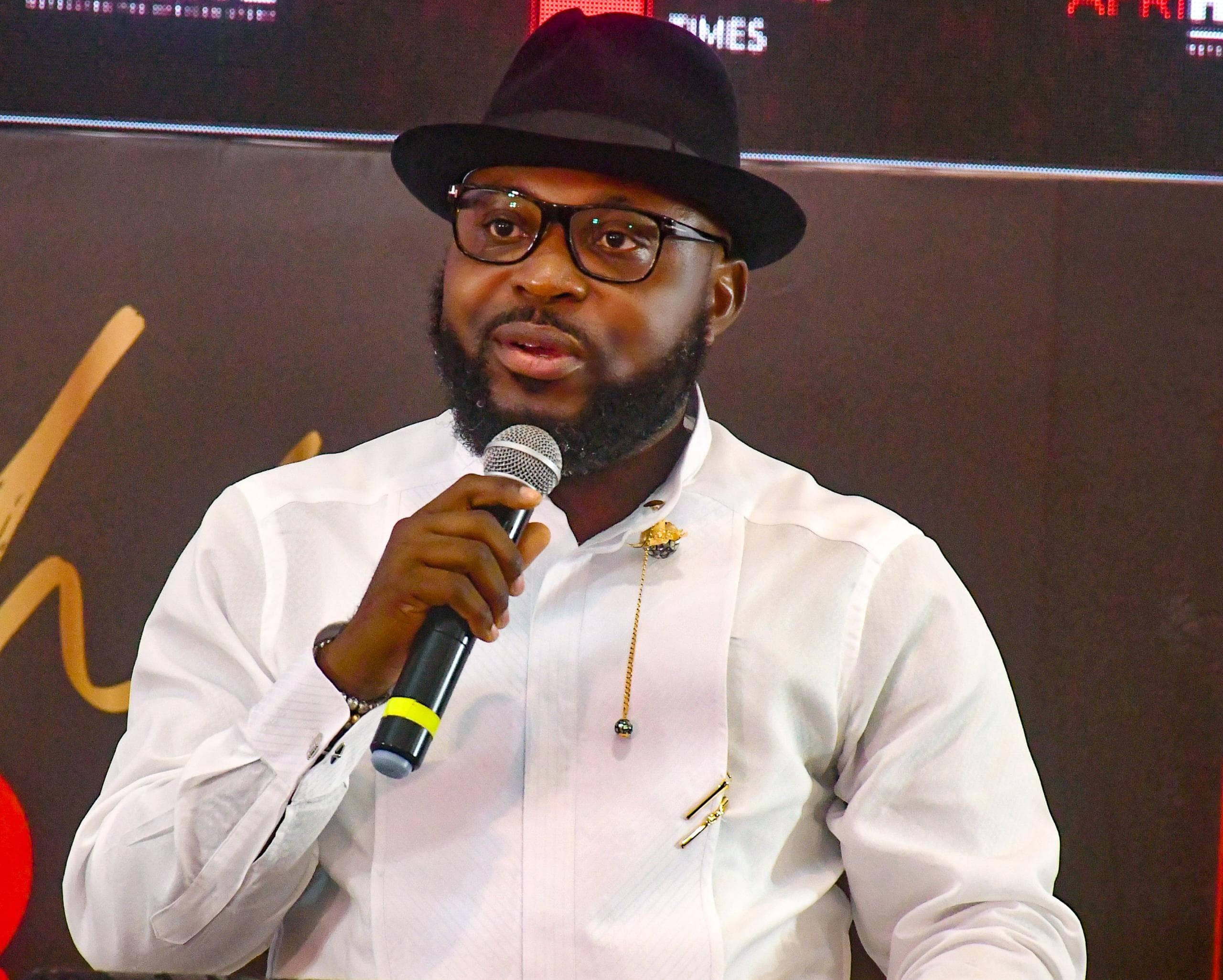312 total views today
By Kayode Adebiyi, News Agency of Nigeria (NAN)
Between April 22 and April 23, the Nigerian government hosted a High-Level African Counter-Terrorism Meeting in Abuja with the theme “Strengthening Regional Cooperation and Institution Building to Address the Evolving Threat of Terrorism”.
The summit brought together several presidents across Africa and more than 20 African countries that are successful in preventing and countering terrorism and violent extremism.
Also in attendance were African regional organisations, international partners, United Nations Global Counter-Terrorism Coordination Compact entities, and 20 African-based civil society organisations.
Organisers said the objective of the summit was to enhance multilateral counter-terrorism cooperation and reshape the international community’s collective response to terrorism in Africa.
They also said the meeting was necessary to emphasise the importance of “African-led and African-owned” solutions to violent extremism and terrorism.
With the support of the United Nations Office of Counter-Terrorism (UNOCT), the gathering set out to provide a platform to review the nature and severity of the threat of terrorism in Africa.
That platform, participants said, would enable the continent to agree on concrete strategic priorities and measures to address the scourge.
Organisers also aimed at fostering deeper regional collaboration, enhancing the institutional capacity of African countries, and facilitating the exchange of best practices and knowledge to combat the multifaceted threat of terrorism.
In his opening address, President Bola Tinubu reminded the gathering that terrorism gets at the fabric of the tranquil, prosperous and just societies that African leaders seek to build for themselves.
He also emphasised that terror cannot co-exist in the same space as democracy and good governance.
“This violent threat seeks to frighten the farmer from his field, children from their schools, women from the marketplace, and families from their very homes.
“It wants the city dweller to cower and businesses to close. It craves despotism and suppression, not democracy and enlightened society.
“Its goal is to cause such havoc that we doubt our democratic principles, putting societies and governments into such confusion and disarray that we begin fighting among ourselves,” he said.
He, however, said the fight against terrorism requires a comprehensive approach, stating that African countries must address the root causes of extremism, such as poverty, marginalisation, and social injustice.
The president did not just leave his audience with empty rhetoric devoid of meaningful action, as he made some suggestions to the meeting on areas of solution to explore.
He reminded his colleagues as African leaders of the need for a fully operational Regional Counter-Terrorism Centre, stressing that such a centre would serve as a hub for intelligence sharing, operational coordination, and capacity building.
He also called for strengthening existing counter-terrorism structures, such as the Regional Intelligence Fusion Unit (RIFU) in Abuja, and the African Centre for the Study and Research on Terrorism (ACSRT) in Algiers.
President Tinubu also pitched the idea that a Regional Standby Force which includes tackling terrorism as part of its mandate should not be abandoned.
“I am mindful of the funding, legal, and logistical complexities that face the proper establishment of such a force.
“However, with a prudent and clearly defined mandate that accords with the international law and respects national sovereignty such a force can serve as a rapid deployment mechanism.
“The idea is for a regional force capable of swiftly responding to major threats and bolstering the security of our region,” he said.
On his part, the National Security Adviser (NSA), Malam Nuhu Ribadu, said Africa’s security landscape is challenged by terrorism and violent extremism, evidenced by seven coups between 2020 and 2023.
He also said terrorism in Africa is being driven by factors such as foreign terrorist fighters, organised crime, prolonged conflicts, drug trafficking, illicit arms trade, high youth unemployment, porous borders, and inadequate policing.
He cited political instability, governance challenges, ethnic and religious tensions, economic inequality, and poverty as factors that also significantly contribute to terrorism in the continent.
“In 2023, the world witnessed a 22 per cent increase in terrorism-related deaths, affecting 41 countries. The continent faces threats from diverse terrorist groups such as Boko Haram and ISWAP in northeast Nigeria, and Al-Shabaab in Somalia.
“The DRC and Mozambique face threats from Allied Democratic Forces (ADF) and Islamic State Central Africa Province (ISCAP).
“These groups exploit local vulnerabilities and contribute to ongoing instability, necessitating integrated security strategies that combine military, economic, and regional cooperation efforts,” he said.
The NSA said Nigeria’s efforts to tackle terrorism are reflected in various strategies and the enactment of key laws to back up implementation frameworks.
He mentioned the National Counter Terrorism Strategy, the Terrorism (Prevention and Prohibition) Act and the Money Laundering (Prevention and Prohibition) Act.
He also said the country’s National Counter-Terrorism Centre is leading Nigeria’s coordinated efforts, bolstered by the recent establishment of the National Centre for the Control of Small Arms and Light Weapons (NCCSALW).
Recall that the NCCSALW just recently retrieved 20,000 small arms and 60,000 units of ammunition in Nigeria.
Ribadu said local communities and other stakeholders play, and should continue to play, crucial roles in countering violent extremism.
He said through partnerships with civil society, youth, and the media, and collaboration with state governments, the federal government is preventing violent extremism, has rehabilitated thousands of terrorism victims and is actively rebuilding affected communities.
Mr. Vladimir Voronkov, UNOCT’s Under-Secretary-General, said at the event that terrorism is a threat to international peace and security, particularly in Africa where its impact is most felt.
He also said that to effectively counter terrorism, African regional organisations have an important role to play.
“Effectively preventing terrorism in Africa necessitates a whole-of-society approach that includes governmental bodies, civil society, academia, and religious institutions.
“Civil society plays a vital role in reaching communities vulnerable to radicalisation. We continue to engage them to address the root causes of violent extremism.
“I am pleased that UNOCT facilitated the participation in today’s meeting of 10 civil society organisations from across Africa,” he said.
At the end of the summit, parties agreed that climate insecurity could exacerbate fragile contexts as well as act as a risk multiplier in combination with other underlying drivers of violent extremism conducive to terrorism.
They emphasized the need to promote the meaningful participation, leadership, and representation of women, youth, victims of terrorist activities and/or people in special situations in decision-making processes related to counter-terrorism.
They also reiterated the promotion of effective “African-led and African-owned” strategies for countering terrorism and violent extremism, among other resolutions. (NANFeatures)
**If used please credit the writer and the News Agency of Nigeria(NAN)






